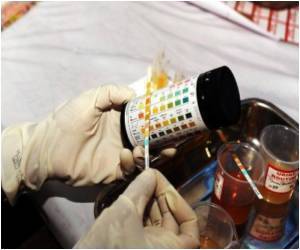Hebrew University of Jerusalem scientists have identified the genetic systems disorganized in autistic brain.

Autism spectrum disorders are neurodevelopmental syndromes characterized by social deficits, language impairments and repetitive behaviors. Recent studies indicate that autism is considerably more common than previously supposed, with a prevalence rate that is high as 1% in some regions.
The main goal of the Hebrew University project was to test the contribution of rare genetic mutations, as well as the genetic variations which are common in the population, and to see whether these different types of genetic risk factors are related. Instead of testing individual genes, the researchers chose to study gene collections, in an attempt to understand general pathways involved in autism.
To that end the scientists constructed a network based on the expression pattern of genes across different brain areas. This allowed them to discover groups of genes with shared function in the brain. Next, based on genetic data from thousands of families with autistic children, the researchers studied the contribution of different groups of genes to autism.
To their surprise, they found -- when looking at mutations found in autism as well as thousands of common gene variants that are more frequently seen in autistics -- that these mutations and variations are located in specific functional groups.
When looking at families with one autistic individual (sporadic cases), and in families where there is more than one affected individual (multiplex cases), the same variants were seen acting in both cases. These groups of genes are highly active in the first year of life, and are involved in processes of learning, memory, and sensory perception.
Advertisement
Source-Eurekalert














